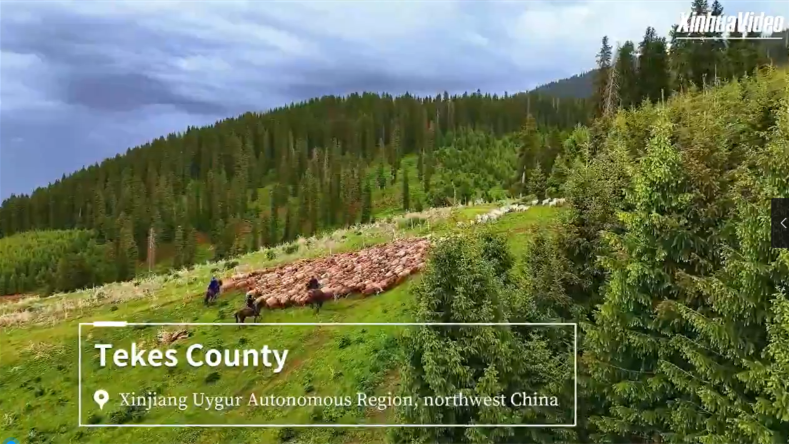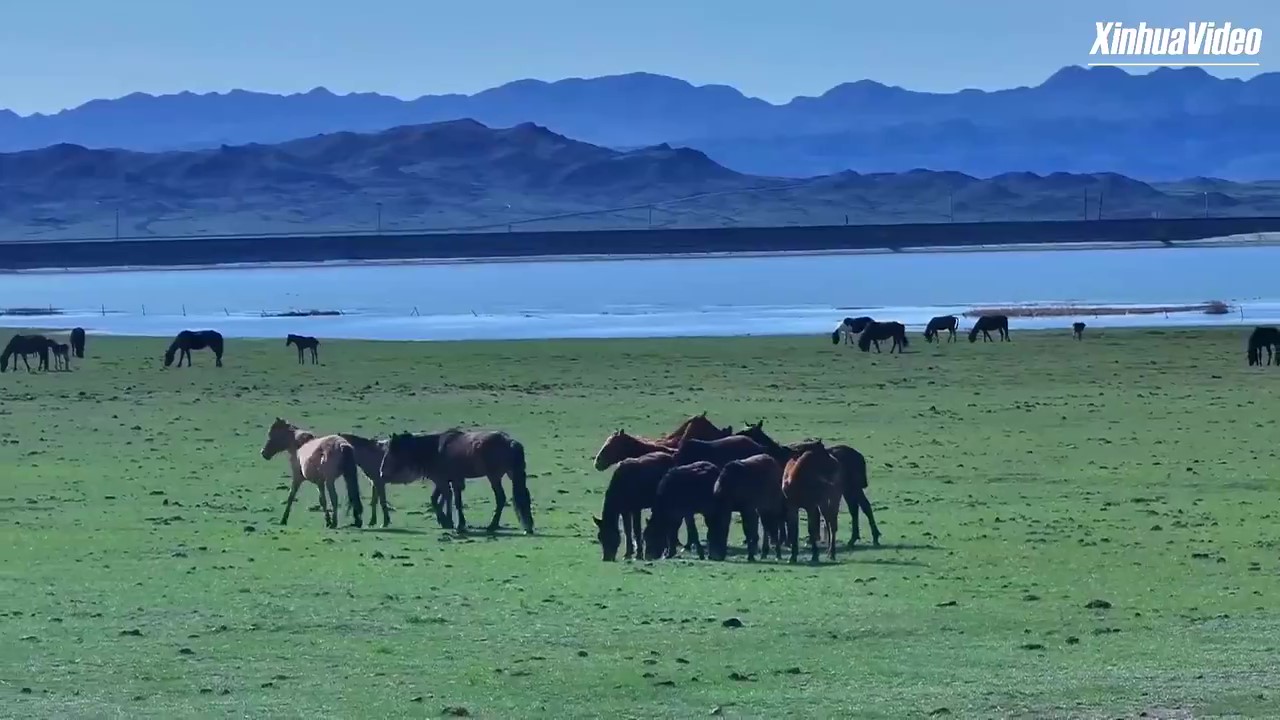The China-Kazakhstan Horgos International Border Cooperation Center, covering an area of 5.6 square kilometers, spans the border areas of China and Kazakhstan. It allows citizens from both countries, as well as those from third countries, to enter and exit the center visa-free for up to 30 days. When entering China from the center, each person can carry tax-free goods worth up to 8,000 yuan ($1,104) per day.
The center also hosts various festivals, international events, forums, and exhibitions, and serves as an important platform for exchanges and cooperation among Central Asian countries. This contributes to the thriving of border tourism, cross-border tourism, and shopping tourism.
As of April 14 this year, the port city of Horgos in northwest China's Xinjiang Uygur Autonomous Region had received a total of over 1.38 million tourist visits, a 10.07 percent increase compared to the same period last year. Tourism revenue reached 1.03 billion yuan, an increase of 6.59 percent year on year.
Danagul Albai, a tourist from Kazakhstan, entered China through the Horgos Port.
"I want to explore China during the warm spring season. I plan to visit Xi'an and indulge in some shopping in Horgos before heading back," the woman said.
Danagul Albai opted to stay at a hotel in downtown Horgos, where she could enjoy the night view and savor the local cuisine on a Central Asian-style street.
According to data from the Horgos entry-exit border checkpoint, Horgos Port recorded a total of 220,000 entries and exits in the first quarter of this year, a 211 percent increase compared to the previous year. On a daily basis, more than 1,600 people passed through the port, with 3,000 the highest recorded number in a single day.
Horgos city has been vigorously promoting all-for-one tourism and cross-border tourism this year.
In partnership with well-known travel agencies from within and outside Xinjiang, the city has launched self-driving and group tour packages that showcase the beauty of Xinjiang and Central Asia.
Furthermore, the city has introduced 13 cross-border tourism routes, including Horgos-Kazakhstan, Horgos-Uzbekistan, and Horgos-Kyrgyzstan, with durations ranging from three to 13 days, to enrich the overall tourist experience.


.png)

.png)

.png)























